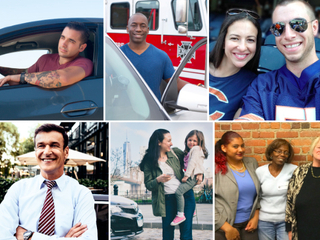
The latest in lawsuits against Lyft and Uber
Uber settles in SF and LA for $25 million; two other cases for Uber and Lyft proceed
Editor's Note: Our annual Vator Splash Spring 2016 conference is around the corner on May 12, 2016 at the historic Scottish Rite Center in Oakland. Speakers include Nigel Eccles (CEO & Co-founder, FanDuel), Andy Dunn (Founder & CEO, Bonobos), Mitch Kapor (Founder, Kapor Center for Social Impact); Founders of NextDoor, Handy, TubeMogul; Investors from Khosla Ventures, Javelin Venture Partners, Kapor Capital, Greylock, DFJ, IDG, IVP and more. Join us! REGISTER HERE.
Seems as though every other week there’s a new lawsuit brought against the two ridesharing giants in the U.S., Lyft and Uber, and it’s hard to keep track of what they’re all about. In the interest of clarifying matters, here are three recent updates regarding these lawsuits that have emerged in the past week.

Settlement in SF, LA: Uber agrees to pay $25 million
Looks like you can’t just say whatever you want in your marketing messages.
Uber this week agreed to pay as much as $25 million to settle a lawsuit brought in 2014 by San Francisco District Attorney George Gascón and Los Angeles District Attorney Jackie Lacey. The two city officials alleged that the company misleadingly marketed its service as the "safest ride on the road" and its background check process for drivers as the "gold standard.”
In reality, Uber background checks do not involve fingerprinting, something which all taxi drivers must go through. It should have come as little surprise, then, that Gascón found 25 examples of drivers in SF and LA that had criminal backgrounds, including sex offenses, identity theft, burglary, kidnapping, and murder.
Uber is required to pay $10 million within 60 days (shared between the two cities), and the remaining amount may be waived if Uber complies with all the settlement terms. For example, the company must remove all marketing messages implying that its background checks are the strictest.
Thanks to the company’s deep pockets—it has raised billion-dollar rounds several times over and is today valued at above $60 billion—the settlement cost shouldn’t be too daunting for the company.
Uber surge-pricing conspiracy won't be dismissed
While one case gets put to rest, another advances.
U.S. District Judge Jed Rakoff has struck down Uber's attempt to dismiss a class-action lawsuit claiming that the company's app operates under a "simple but illegal business plan." That plan, according to the suit, reads just like a conspiracy theory: that Uber CEO Travis Kalanick and the drivers employed by the company have colluded (under the guise of surge pricing) to illegally set up high fares.
Though Uber's lawyers tried to dismiss the case as "wildly implausible," Judge Rakoff wasn’t convinced. So the case will be going to trial.
Lyft's $12 million settlement overruled
Earlier this year, Lyft agreed to a settlement with drivers who had been challenging their employment status. In the end, the company agreed to pay over $12 million in damages to drivers, who would continue to be classified as independent contractors, not employees.
This week, however, U.S. District Judge Vince Chhabria has thrown out the settlement after reviewing the case and finding that “the settlement agreement does not fall within the range of reasonableness.”
Using a methodology employed by the drivers' lawyers, the judge found that the drivers may have been shortchanged by at least half of what they're deserved. Additionally, he argues that the state of California may have been shortchanged as well.
As such, he has handed the ball back to Lyft and the plaintiffs, allowing them to correct the settlement to be more appropriately calculated without having to renegotiate the terms around classification of drivers.
Uber, on the other hand, has a June court date to look forward to, when arguments will be heard to decide whether to classify its drivers as employees or independent contractors.
Related Companies, Investors, and Entrepreneurs
Lyft
Startup/Business
Joined Vator on
Lyft is a peer-to-peer transportation platform that connects passengers who need rides with drivers willing to provide rides using their own personal vehicles.
Uber
Startup/Business
Joined Vator on
Uber is a ridesharing service headquartered in San Francisco, United States, which operates in multiple international cities. The company uses a smartphone application to arrange rides between riders and drivers.
Related News


